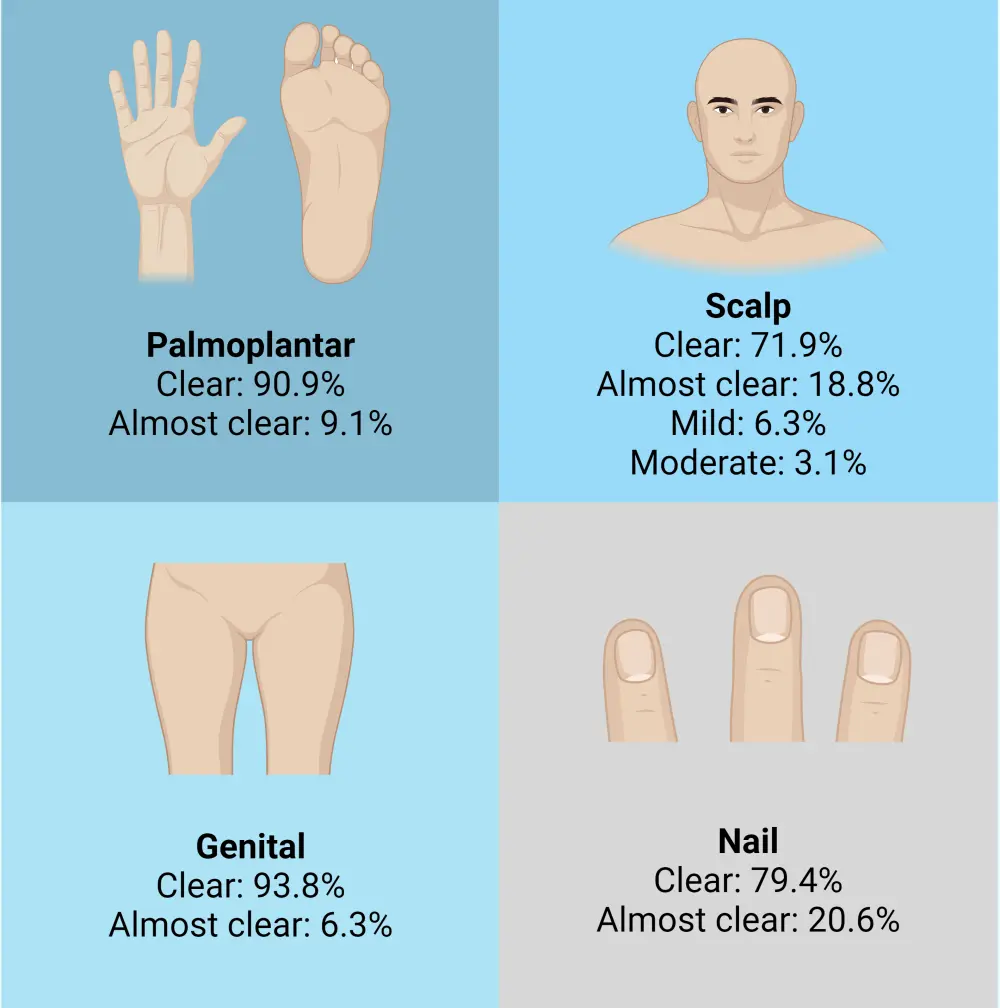All content on this site is intended for healthcare professionals only. By acknowledging this message and accessing the information on this website you are confirming that you are a Healthcare Professional.
The pso Hub website uses a third-party service provided by Google that dynamically translates web content. Translations are machine generated, so may not be an exact or complete translation, and the pso Hub cannot guarantee the accuracy of translated content. The pso and its employees will not be liable for any direct, indirect, or consequential damages (even if foreseeable) resulting from use of the Google Translate feature. For further support with Google Translate, visit Google Translate Help.
The PsOPsA Hub is an independent medical education platform, supported by educational grants. We would like to express our gratitude to the following companies for their support: UCB, for website development, launch, and ongoing maintenance; UCB, for educational content and news updates. Funders are allowed no direct influence on our content. The levels of sponsorship listed are reflective of the amount of funding given.
Now you can support HCPs in making informed decisions for their patients
Your contribution helps us continuously deliver expertly curated content to HCPs worldwide. You will also have the opportunity to make a content suggestion for consideration and receive updates on the impact contributions are making to our content.
Find out more
Create an account and access these new features:
Bookmark content to read later
Select your specific areas of interest
View psoriasis and psoriatic arthritis content recommended for you
Safety and efficacy of tildrakizumab in elderly patients with psoriasis: results from the ESTER study
Psoriasis is increasingly prevalent in elderly populations due to improved life expectancy.1 However, psoriasis can be difficult-to-treat in this population due to immune system impairment and increased susceptibility to infections and malignancies. Additionally, there are few clinical trials which enroll patients aged ≥ 65 years.1
Here, we summarize a paper by Orsini et al.1 published in the Journal of Dermatological Treatment on the real-world ESTER study evaluating the safety and efficacy of tildrakizumab for elderly patients with psoriasis.
Study design and patient population1
-
ESTER was a 28-week, multicenter retrospective study, conducted at five Italian centers.
-
The study enrolled elderly patients aged ≥65 years with a diagnosis of moderate-to-severe plaque psoriasis. Patients received subcutaneous tildrakizumab 100 mg at Weeks 0 and 4, then every 12 weeks after.
-
Psoriasis Area and Severity Index (PASI) and Physician Global Assessment (PGA) scores were assessed at Weeks 4, 16, and 28. PGA was assessed in difficult-to-treat areas:
-
-
Genitalia (sPGA-G)
-
Fingernail (f-PGA)
-
Palmoplantar (pp-PGA)
-
Scalp (sc-PGA)
-
-
A total of 49 patients were enrolled. The majority were male (57%), with a mean age of 73.1 years. Six patients had concomitant psoriatic arthritis.
-
At baseline, the mean PASI was 13.6 and 53.1% of patients had difficult-to-treat area involvement.
Key findings1
-
A total of 40 patients completed 28 weeks of treatment.
-
Over the 28 weeks of treatment, there was a notable increase in the percentage of patients achieving 75% improvement in PASI, 90% improvement in PASI, and 100% improvement in PASI. The percentage of patients achieving 75% improvement in PASI increased from 34% at Week 4 to 77.5% at Week 28.
-
29.8%, 64.4%, and 82.5% had a PASI score ≤2 after 4 weeks, 16 weeks, and 28 weeks of treatment, respectively.
-
The percentage of patients achieving a PGA of clear or almost clear in all the difficult-to-treat areas increased from baseline to Week 24. Over 70% of patients in all difficult-to-treat areas achieved a clear PGA at Week 24 (Figure 1).
-
There were no severe adverse events reported to Week 28.
Figure 1. PGA scores at Week 24 for difficult-to-treat areas*

PGA, Physician Global Assessment.
*Data from Orsini, et al.1 Created with Biorender.com.
|
Key learnings |
|
References
Please indicate your level of agreement with the following statements:
The content was clear and easy to understand
The content addressed the learning objectives
The content was relevant to my practice
I will change my clinical practice as a result of this content
Your opinion matters
On average, how many patients with plaque psoriasis do you see per month?

